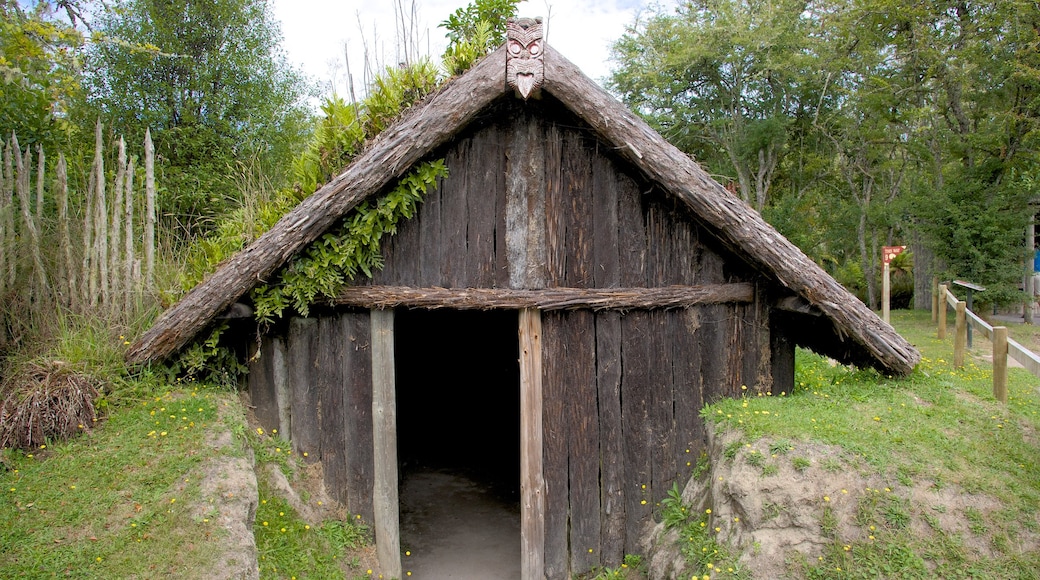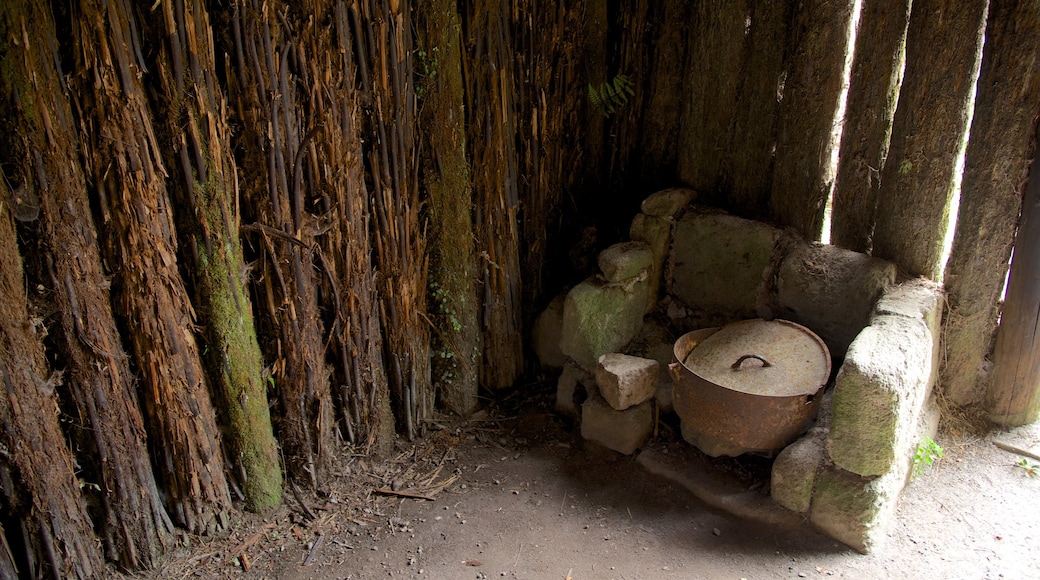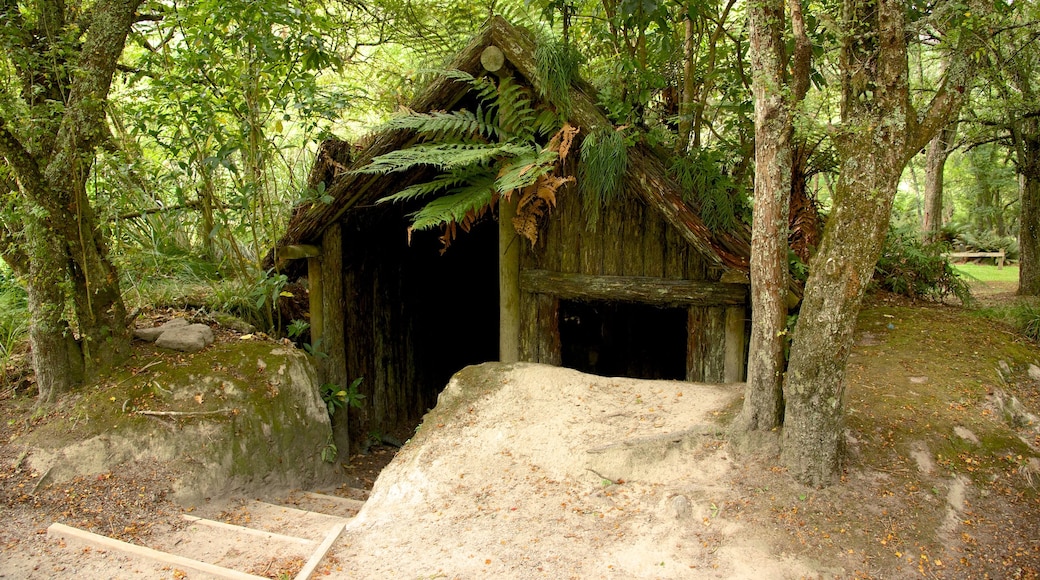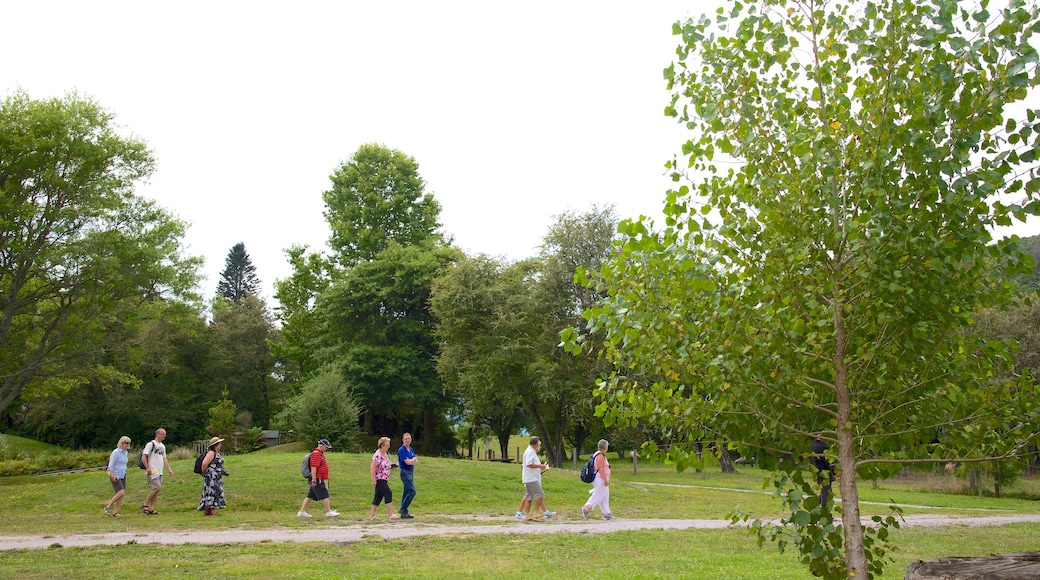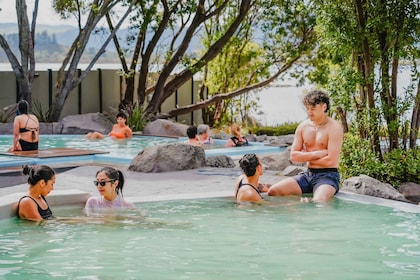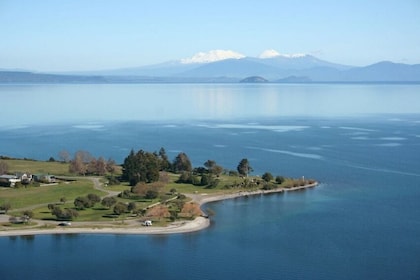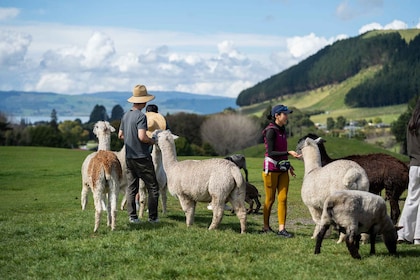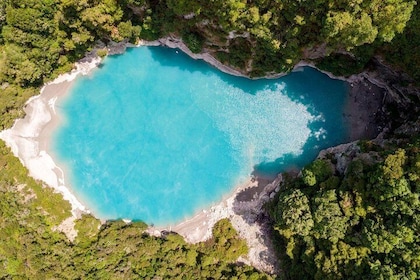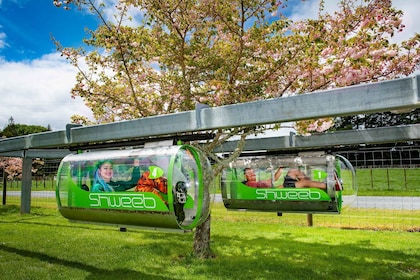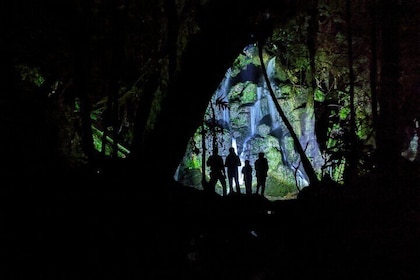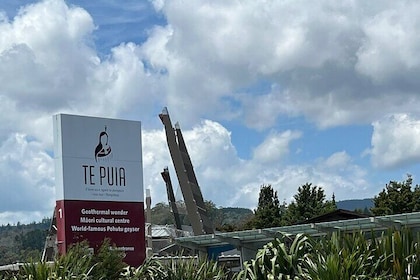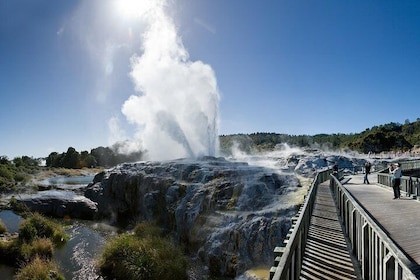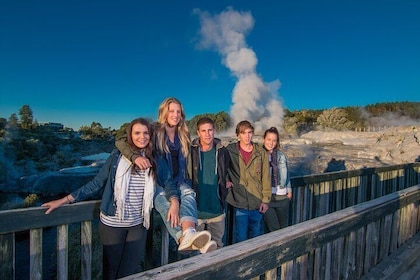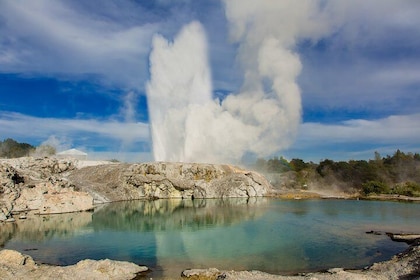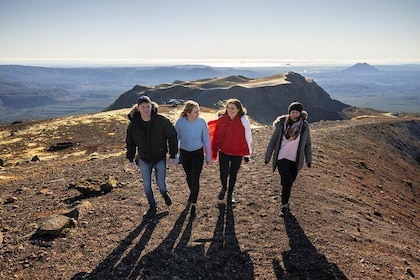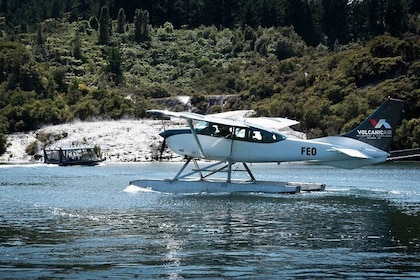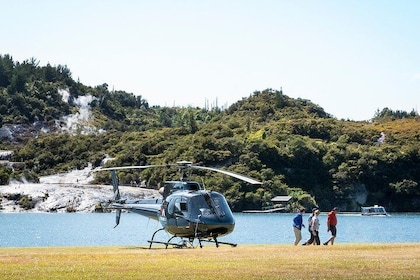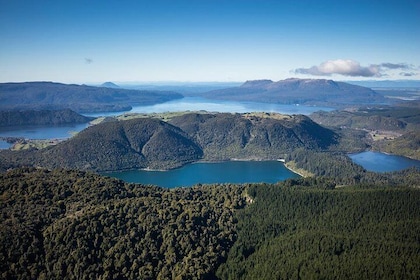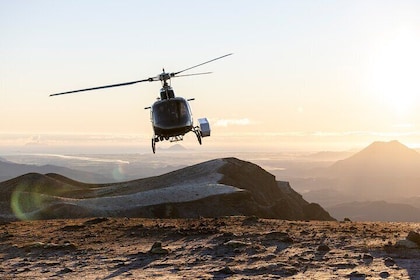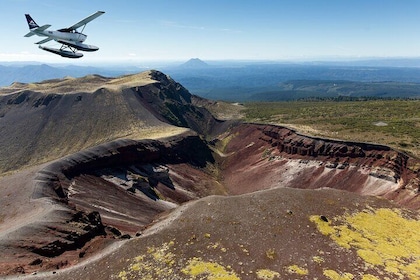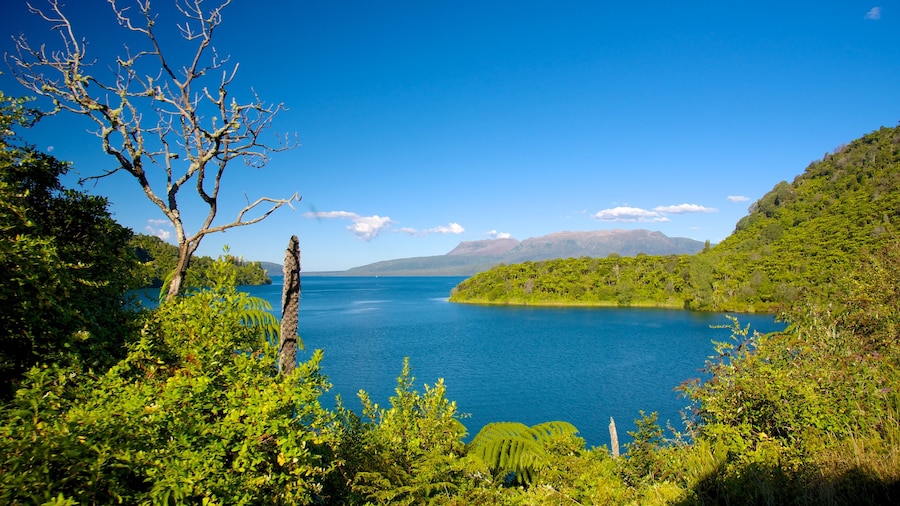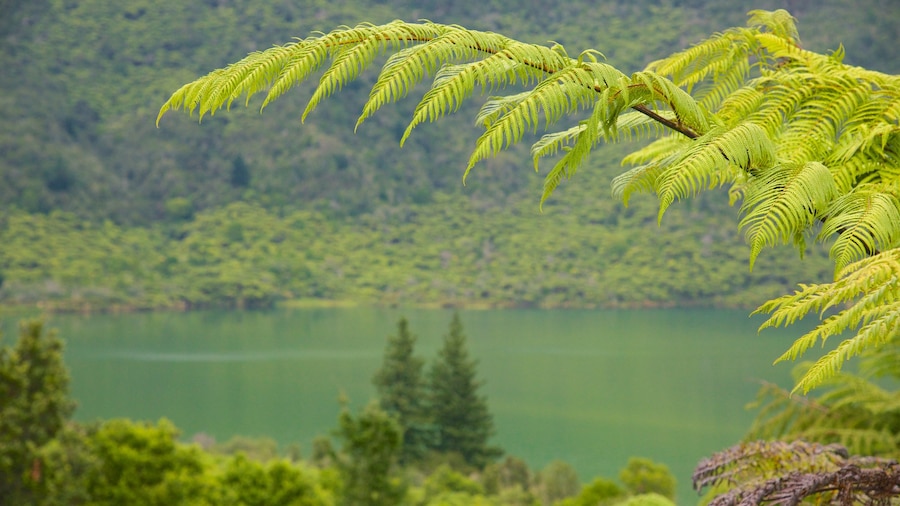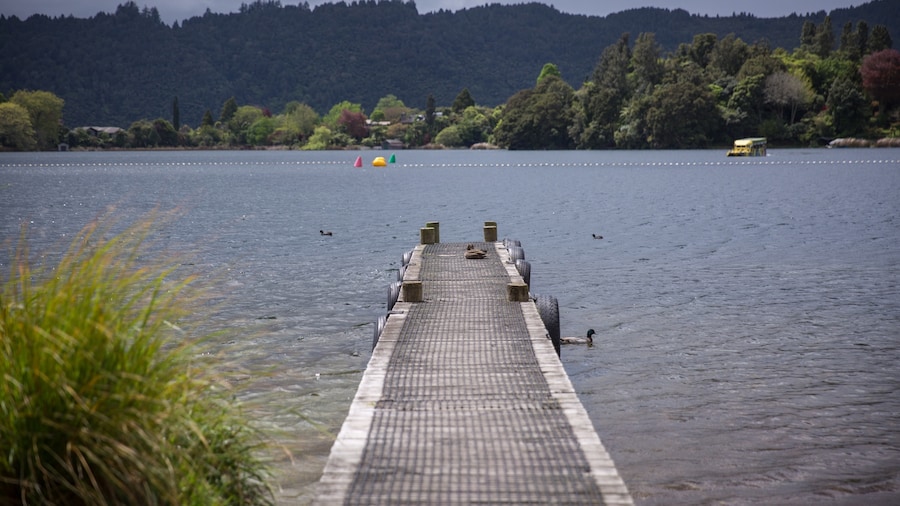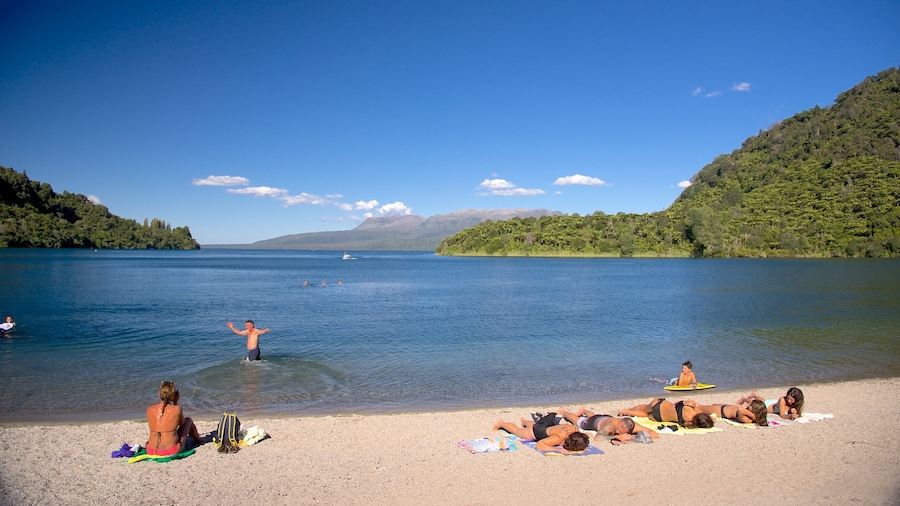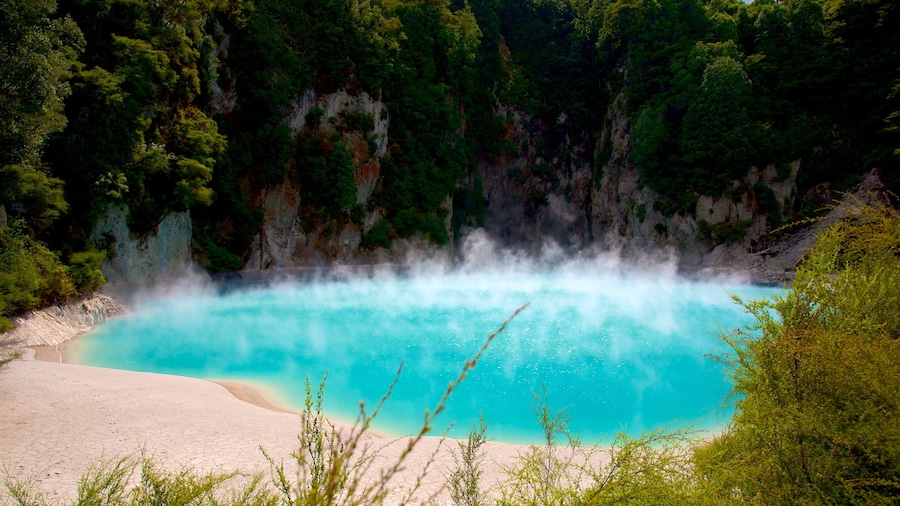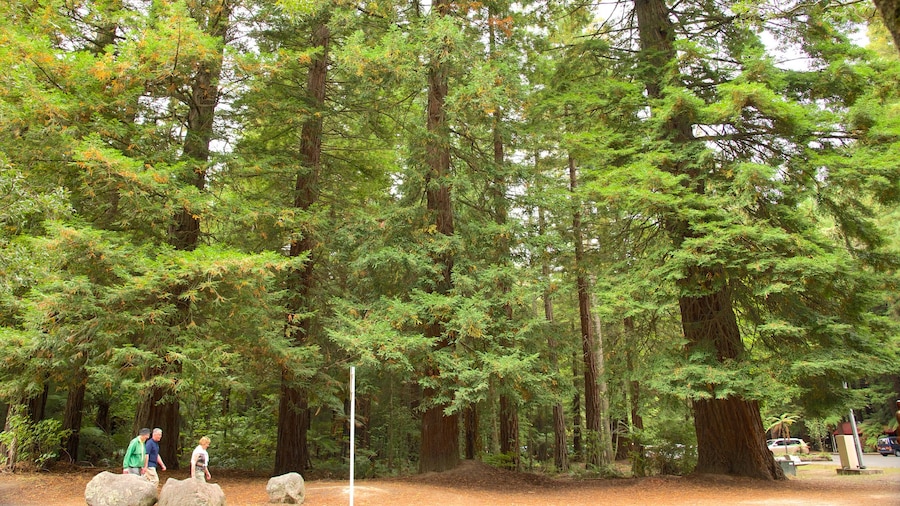Entombed by the eruption of a brutal volcano, this historic village has been perfectly preserved for more than 100 years.
Preserved by the volcanic ash from an eruption, the Buried Village of Te Wairoa offers a fascinating insight into life in 19th-century New Zealand. Peer into the remains of old houses and factories, visit the stunning waterfall at the site and find out just how the nearby volcano caused such lasting damage.
Close to the shores of Lake Rotomahana, the village of Te Wairoa was often used as a stop-off point for travellers who came to marvel at the Pink and White Terraces. Known as the “eighth wonder of the world”, the Pink and White Terraces were a geothermal phenomenon that attracted droves of people from across the globe. That is, until disaster struck in 1886 with the eruption of Mount Tarawera. The village was buried under mud and a huge crater engulfed the terraces.
Join a guide dressed in period clothing to explore the village, which has been subject to extensive excavation since 1931. Among the notable features of the site are the remains of small houses, a flour mill and a blacksmith’s workshop where some tools can be seen.
Immerse yourself in the serene countryside that surrounds the village and set off on a 20-minute walk to the Te Wairoa Falls. Watch as crystal-clear water from the stream above falls 30 metres (98 feet) into a pool at the base. Feel the spray on your face and spot rainbow trout swimming nearby.
Find the on-site museum near the village entrance. View utensils and other relics that were recovered here and discover enthralling stories from the night the deadly eruption hit. Admire a model of the village showing how it would have looked back in its heyday. Children will love the hands-on archaeological dig exhibition and the play park just outside.
The Buried Village is 15 kilometres (9 miles) southeast of Rotorua. The village is open daily and there is an admission fee.
